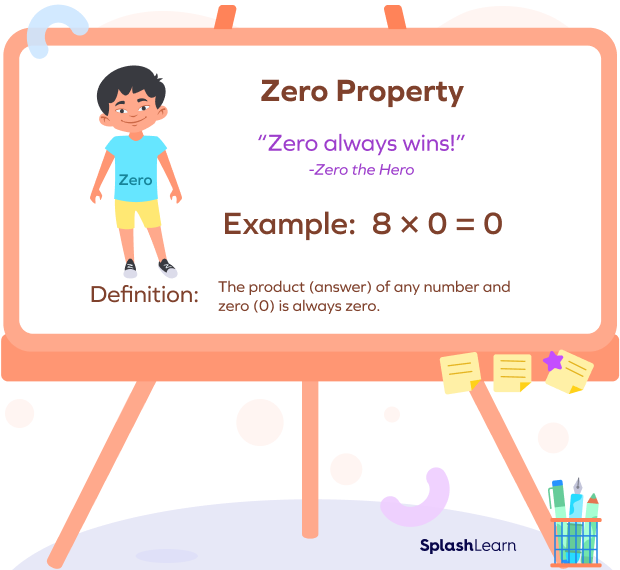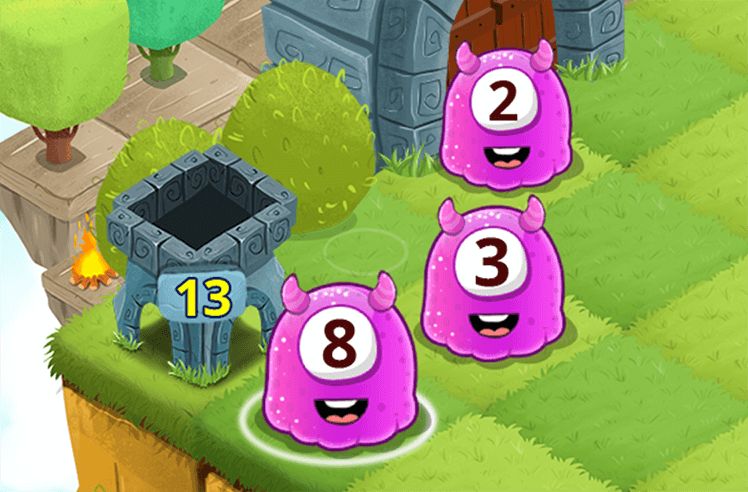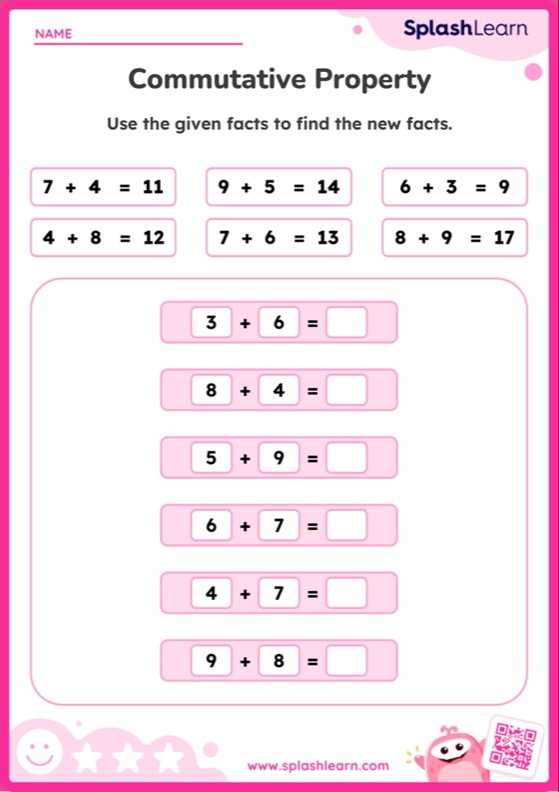Multiplying any number with zero is perhaps the easiest of all tasks! No matter how big the number is, when you multiply it with zero, the answer is always simple—zero. So, among all the numbers you know of, perhaps it is easiest to learn the multiplication table of the digit 0.
This is due to the zero property of multiplication which states that the product of any number and zero is always zero. This property applies to all kinds of numbers, no matter how big or small the number is.
Let us learn about this property in greater detail.

What Is the Zero Property of Multiplication?
Zero property of multiplication is defined as “when we multiply any number by zero, the resulting product is always a zero”. It is not compulsory for zero to be the first or the second of the numbers. It can be at any spot when multiplied by another number. This means that the position of the digit zero does not impact the outcome of the multiplication.
This property also applies to all types of numbers. They can be integer, decimal, or fractional numbers. So, the outcome of some such numbers will be as follows:
$8 \times 0 = 0$
$\frac{1}{2} \times 0 = 0$
$6.4 \times 0 = 0$
This works even when you are multiplying more than two numbers. If you are finding the product of, say, three numbers or ten numbers, as long as any one of the numbers in your multiplication expression is zero, the final product would also be zero.
$0 \times 1 \times 2 \times 3 = 0$
It should be noted that this property of a zero holds true only for the operation of multiplication. The mathematical function of division does not work the same way. This applies even when division is simply the inverse of multiplication. So, if you were to divide a number by zero, the resulting answer would not be zero since dividing by 0 is undefined.
However, the zero property does apply to the operations of addition and subtraction, but it is a bit different in those cases. When you add or subtract zero from a number, the result is actually the same number and not zero.
 Begin here
Begin here
Solved Examples
Example 1: Use the zero property of multiplication to find the missing number in the given equations.
$32 \times 0 =$ __
Solution: As per the zero property of multiplication,
$32 \times 0 = 0$.
Example 2: Use the zero property of multiplication to find the answer to the missing number $57 \times \underline{} = 0$
Solution: According to the zero property of multiplication, when any number is multiplied by 0, the resulting product is a zero. Hence, $57 \times 0 = 0$
Example 3: Does the zero property of multiplication apply to a negative number? If so, what will be the result of multiplying -75 with 0?Solution: The zero property of multiplication applies to all numbers, including negative numbers. Thus, when -75 is multiplied by 0, the resulting product will be 0.
Related Worksheets
Practice Problems
Zero Property of Multiplication - Definition with Examples
Which of the following equations depicts the zero property of multiplication?
The zero property of multiplication applies to any number, which, when multiplied by 0, yields the answer 0. Out of the options
given above, only the third option depicts the multiplication of a number with 0.
What is the product of the first 15 whole numbers?
The first 15 whole numbers are 0, 1, 2, 3 … 14.
As per the zero property of multiplication, the product of all these numbers would be 0.
Which of the following is an example of a zero property of multiplication?
The zero property of multiplication applies to any number, which, when multiplied by 0, yields the answer 0. Out of the options
given above, only the third option depicts the multiplication of a number with 0.
Frequently Asked Questions
Is the identity property of multiplication different from the zero property of multiplication?
Yes, according to the identity property of multiplication, upon multiplying any number with 1, the resulting product is the number itself. However, the zero property of multiplication states that when any number is multiplied by 0, the resulting product is 0.
What is the associative property of multiplication?
According to the associative property of multiplication, the product of any three numbers remains the same, irrespective of the order in which they are grouped.
Is the zero property of multiplication the sole property of multiplication?
No, the zero property of multiplication is one of the many properties of multiplication. Some other properties of multiplication are commutative property, associative property, and distributive property.





















